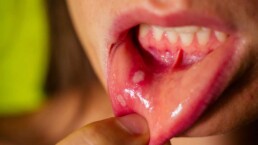Maintaining healthy, glowing skin is a priority for many people. The skin care industry is booming worldwide because of this. even though using skin care products like moisturizers and eye creams help, what you eat is key too. This article will dig into using supplements for skin health. It will also clear up a couple of skin care myths.
Table of Contents
ToggleRecent studies show over 70% of people put vitamins and nutrients in their skin care routines. The market for vitamin-enriched skin care is growing fast. Dermatologists say products with Vitamin C, Collagen, and Omega-3s are best for skin health.
Importance of Nutrition for Healthy Skin
Your skin is your body’s largest organ. It needs the right nutrients to work well. Good food is key to keeping your skin healthy and glowing. Eating fats, proteins, vitamins, and minerals helps nourish your skin inside out.
Role of Diet and Lifestyle in Skin Health
Eating a balanced diet helps your skin look its best. Foods like fruits, vegetables, and lean proteins are great for your skin. They have things like antioxidants and vitamins that help keep your skin looking young.
Also, drink plenty of water, use sunscreen, and keep stress low. These things help make your skin shine.
Debunking Common Skin Care Myths
Using skin care products can help, but some myths need busting. Expensive products aren’t always better. What matters is the quality and if it fits your skin’s needs.
And no, just changing your diet won’t magically fix skin issues. Eating well can help, but for real problems, it’s best to see a skin doctor.
Learning about nutrition and avoiding skin care myths will lead to a glowing complexion. This shows you’re taking care of your whole self.
Collagen: The Key to Youthful Skin
Collagen is super important for making your skin look and feel great. As you get older, your body makes less collagen. This causes wrinkles, sagging, and less elastic skin. But, taking collagen supplements can help fight these signs of aging. They can make your skin radiate youth.
Benefits of Collagen Supplements for Skin
Research shows collagen supplements can do wonders for your skin. They can boost skin stretchiness, lessen fine lines, wrinkles, and keep your skin moist. Collagen might also fade acne scars and stretch marks. Plus, it helps your skin heal.
Plus, these supplements shield your skin from early aging by battling sun damage. They help your body make more collagen too. This keeps your skin looking young and fresh.
Best Collagen Supplements for Skin Health
Selecting the right collagen supplement for your skin involves some thought. Opt for hydrolyzed collagen since it’s easy for your body to use. Also, choose supplements with extra skin-loving ingredients. These include vitamin C, biotin, and hyaluronic acid.
Here are some highly-rated collagen supplements for skin:
- Neuherbs Skin Glow Collagen Powder, which gives you 5 grams of marine collagen peptides in each serving. It also has vitamin C, E, and biotin.
- Try Vital Proteins Collagen Peptides. It’s a top choice for skin, hair, and nails and comes in an unflavored option.
- Sports Research Collagen Peptides is a hydrolyzed type that boosts skin health. It also includes hyaluronic acid.
Keep in mind, collagen supplements are a good boost for your skin care. But, they’re not a wonder fix. To keep your skin looking young, eat well, drink water, and shield from the sun.

Omega-3 Fatty Acids: Nourishing from Within
Your diet is super important for healthy, glowing skin. Omega-3 fatty acids stand out here. They feed your body inside out and make your skin work better.
How Omega-3s Support Skin Function
Omega-3s like EPA and DHA fight inflammation. This can lower redness, swelling, and skin irritated spots. They might even help your skin fight off damage from UV rays, lessening skin cancer risks.
They also help your skin hold onto moisture by making more ceramides. Ceramides are the fats that keep your skin wet and feeling nice. This stops dryness and flakes, making your skin look and feel good.
Omega-3s aid in making more collagen, which is key for flexible, tight skin. They help against inflammation and keep your skin strong and bouncy. So, your skin stays young and glowing.
Omega-3s are good against some skin troubles too, like atopic dermatitis, psoriasis, and pimples. They fight off inflammation and germs, making your skin healthier.
But, omega-3 supplements might not make already-healthy skin look better. They’re great for skin issues, though.
Vitamin C: The Antioxidant Powerhouse
Vitamin C is great for your skin. It helps make collagen, keeping your skin young and glowing. It also fights off bad stuff in the air that can harm your skin.
Vitamin C’s Role in Collagen Production
Collagen is super important for your skin’s strength and flexibility. Vitamin C helps your body make collagen. This keeps your skin looking and feeling good.
Taking vitamin C can reduce fine lines and wrinkles. Using it on your skin can make you look younger and brighter.
Potential Benefits of Vitamin C Supplements
Vitamin C does more than make collagen. It makes your skin look better. It can make wrinkles less and your skin more hydrated.
It works even better with other things, like collagen and zinc. A special serum with vitamin C made skin healthier by not losing as much water.
Vitamin C also protects your skin from sun damage. It lightens dark spots, lowers redness, and fights puffiness.
Pick a vitamin C supplement that your body can use well. Also, try vitamin C in your skincare. For oily or acne skin, the Lotus Herbals WhiteGlow Vitamin C + Gold Radiance Serum is a good choice.

Supplements are good, but eating foods rich in vitamin C is better. Things like citrus fruits, bell peppers, and greens make your skin shine.
Biotin: The Hair, Skin, and Nails Vitamin
Biotin, known as vitamin B7, is called the “hair, skin, and nails vitamin.” Some say biotin pills make skin shiny and hair strong. But, if you’re not missing biotin, they might not help a lot.
Most healthy people get enough biotin from their food. Foods like eggs, nuts, and meats have biotin. So, eating these foods helps your hair, skin, and nails stay healthy.
Taking extra biotin might not really make your skin, hair, or nails look better. Also, it can mess with some important health tests. So, unless a doctor says you need it, biotin isn’t a quick fix for great looks.
It’s better to eat well to keep your body healthy. That means foods with lots of vitamin C, good fats, and collagen. Also, remember to drink water, protect your skin from the sun, and try to stay calm. These things help make your skin glow and your hair and nails strong.
If you worry about your hair, skin, or nails a lot, talk to a skin doctor or a diet expert. They can figure out what’s really wrong and make a plan just for you. Then, you can get the healthy, shiny skin and hair you dream of.
vitamins for glowing skin
A glowing face is more than beauty – it shows your skin is healthy. Skincare helps, but real change starts from the inside. Some vitamins and nutrients do wonders for your skin, making it look fresh and clear.
Now, let’s see what vitamins and minerals can make your face shine:
- Vitamin C – Boosts collagen and lessens fine lines and dark spots. Using it on your skin can also up the collagen inside.
- Vitamin A – Fights acne and age marks, thanks to having antioxidants.
- Vitamin E – Protects from the sun, keeping your skin soft and healthy.
- Vitamin D – Key for growing skin cells, but you might lack it if you use sunscreen a lot.
- Vitamin K – Makes healing faster and lightens the look of scars and dark spots.
- Vitamin B3 (Niacin) – Makes skin smoother, adds moisture, and fights aging and acne signs.
- Vitamin B5 (Pantothenic Acid) – Helps keep skin tight and reduces fine lines by holding in moisture.
Besides vitamins, healthy fats and some minerals are vital for the skin’s shine. Add seafood omega-3s, selenium, and zinc to your diet. This mix, plus the right supplements, will help you get that beautiful, radiant skin.
Always check with a doctor before taking new vitamins. Too much of some vitamins can harm you. But, the proper nutrition can work wonders, giving you a lively, young-looking face.
Multinutrient Supplements: A Comprehensive Approach
Want a glowing, healthy face? It’s good to use multiple ways to keep your skin happy. Some new studies say that taking vitamins, minerals, and other good stuff can help. They might fix dry skin, make it brighter, and help with spots.
Studies on Multinutrient Supplements for Skin Health
In 2019, 50 women, like your mom or grandma, tried a special pill. This pill was full of good stuff for the skin. Compared to those who didn’t take it, they had much better skin. This shows that many nutrients together might be better for the skin than just one or two.
Taking a multivitamin could also make skin look better. This is true especially if you’re missing some important skin nutrients. Like, if you don’t get enough vitamin C or E, or zinc, a multivitamin might help your skin look fresh.
Chicnutrix Beautymins is a good example of a special vitamin mix. It has 26 things your body and skin need. It helps with hair, skin, and nails. By filling in what your diet might be missing, it can make your skin shine.
So, a mix of many good things might be better for your skin than just one. This could be a great help for anyone looking to keep their skin young and fresh.
Probiotics: Supporting Gut-Skin Connection
Probiotics are friendly bacteria in our gut that are key for good health. They help our skin stay healthy too. When our gut’s good bacteria are low, it can cause skin problems like acne and eczema.
Role of Probiotics in Skin Conditions
Having a healthy balance of these good bacteria can improve your skin. People with conditions such as rosacea often have stomach issues too. This shows how our gut and skin are linked.
Probiotic pills can help with skin issues like eczema. Some types, like Lactobacillus and Bifidobacterium, can make your skin healthier. They reduce swelling and balance the skin’s health, improving conditions like acne.
- Gut health is where 70% of the immune system lies, making it a crucial factor in skin health.
- A 2017 study found that individuals with rosacea have a higher incidence of gastrointestinal disease.
- Probiotics help restore and balance the gut microbiome, which can have a positive impact on skin conditions.
- Studies have shown probiotics to be beneficial for gastrointestinal diseases and inflammatory skin conditions like eczema and dermatitis.
Eating well, living a healthy lifestyle, and managing stress are also very important. They work together with probiotics to keep you healthy. Talk to a doctor to see if you need probiotics for your health.

Supplements: Necessary or Not?
Many people think supplements are a quick way to get healthy, glowing skin. But, healthy skin doesn’t only come from supplements. It starts with eating a lot of nutrients every day.
When Supplements Can Benefit Skin Health
Some people can’t get all they need from food. For instance, too few Americans get enough vitamins D and E. These vitamins are super important for the skin. So, some folks may need supplements, like older adults or those who don’t see much sunlight.
Vitamin E might be needed by people not eating much fat or have trouble absorbing it. Zinc supplements help with skin issues like acne or eczema. But most people can get what they need from food and water.
If your diet is already full of good foods, you probably don’t need supplements. Just keep eating well and staying active. This is the best way to keep your skin happy and healthy.
Remember, supplements can help sometimes. But, they don’t replace a good diet. If you eat lots of fruits and vegetables, your skin will thank you. Doing this helps your skin get all it needs to look and feel great.
Potential Risks: Supplements That May Harm Skin
Some supplements boost skin health and look. But, others might make skin problems worse. Knowing the risks of some supplements is important.
Use of hair, skin, and nail supplements is growing. It went up from 2.5% to 4.9% for Americans in the last month. This rise was seen more in women, Black and Hispanic people, and those 20 to 39 years old.
But, all supplements don’t work the same. Some B vitamins, kelp high in iodine, and whey protein can make acne worse. Kelp can cause a skin rash because of too much iodine. It speeds up enzymes that lead to this rash.
A report found many collagen supplements on Amazon in 2020 had harmful materials like arsenic and lead. This can affect your skin and health badly.
Some supplements, like biotin, might have too much of what you need each day. They might ask you to take more pills than you should. This can cause problems. Always be careful with them.

Supplements can help your skin. But, knowing the risks is key. Talk to a doctor before you start taking them. Choose brands that are known for safety.
A Balanced Diet: The Foundation for Glowing Skin
Your diet is key for glowing skin. Eating a mix of nutrient-packed foods helps. It gives your skin the vitamins, minerals, and antioxidants it needs. Whole, plant-based foods are great for keeping your skin healthy and beautiful.
Nutrient-Dense Foods for Healthy Skin
Want youthful, glowing skin? Eat these nutrient-dense foods regularly:
- Berries like blueberries, strawberries, and raspberries, full of antioxidants
- Citrus fruits, leafy greens, and other colorful fruits and veggies for vitamin C
- Fatty fish has omega-3 to keep your skin’s barrier strong and hydrated
- Nuts and seeds for vitamins, minerals, and good fats
- Sweet potatoes and carrots for a healthy glow
Drinking enough water, protecting your skin from the sun, and a good skincare routine also matter. A complete skin health plan helps you keep your skin young and bright.
Lifestyle Factors Affecting Skin Health
Keeping your skin healthy is more than eating right. Many things like how much you hydrate, protect against sun, and handle stress can make your skin look great. A beautiful glow can show you’re doing well in all parts of life.
Hydration: The Key to Supple Skin
Hydration is key for skin. Skin cells are always being lost, up to 40,000 each hour. You need to drink a lot of water daily to keep your skin at its best. Drinking at least 2 liters has been proven to make skin look better.
Sun Protection: Shielding Your Skin
UV rays can really harm your skin. They can make you look older, increase cancer risks, and cause spots. Using SPF 15 sunscreen daily and SPF 30 or more outdoors is vital.
Stress Management: Calming the Skin
Stress affects your skin too. It can make your skin act up. Doing things like meditation, yoga, or just relaxing helps your skin health. Even regular exercise can make your skin look much younger.
By taking care of how you drink water, protect against the sun, and handle stress, your skin can shine. This will lead you to a glowing, healthy face.

Consulting a Professional
Wanting a glowing complexion? Professional advice is key. Especially if you have certain skin worries. Talk to a dermatologist or dietitian for the best help.
When to Seek Advice from a Dermatologist or Dietitian
A dermatologist knows skin health best. They look at your skin, find any problems, and suggest treatments. This could mean changes in what you eat, adding supplements, or both.
However, a dietitian is great for making a diet that’s good for your skin. They check what you eat now, see what’s missing, and then make a plan. This plan makes sure your skin gets all the good stuff it needs to look its best.
By talking to pros, you can get the right help. This means better and safer ways to reach your skin goals. No more trying things that might not work or could even harm your skin.
Your skin shows how healthy you are. Working with experts like dermatologists or dietitians can really make a difference. They help you find the real secrets to beautiful, healthy skin.
Conclusion
Supplements can help with skin health. But, eating a mix of fruits, veggies, fats, and proteins is key. A diet filled with good nutrients is great for your skin.
Eat foods rich in vitamins A, C, E, D, K, and B. These vitamins keep your skin young and healthy. Foods like carrots, fruits, nuts, and greens can make your skin glow.
Take a holistic approach to caring for your skin. Combine good food with vitamins and a healthy lifestyle. This way, you can have skin that shines. Always talk to a doctor for the best advice on your skin.
FAQ
What are the key nutrients for maintaining healthy, glowing skin?
Your skin stays healthy and glows with the right balance of fats, proteins, vitamins, and minerals. These include collagen, omega-3, vitamin C, and probiotics. They help your skin look and work well.
Can collagen supplements really improve skin health?
There is proof that collagen supplements can help with wrinkles, elasticity, and being hydrated. Yet, they don’t work like magic. They won’t turn back time for your skin.
How do omega-3 fatty acids benefit the skin?
Omega-3 fats are key for the skin. They are good for conditions like atopic dermatitis, psoriasis, acne, and skin ulcers. They keep your skin overall healthy.
Is vitamin C important for skin health?
Yes, vitamin C boosts collagen and guards against the sun. It may make skin look better by reducing wrinkles and dryness. These effects get better with zinc and collagen.
Do biotin supplements really improve skin, hair, and nails?
Maybe not. Biotin helps only if you lack it. This is rare for people eating a balanced diet. Also, it can mess up some lab results. So, think twice before taking it.
Can supplements really replace a healthy diet for skin health?
No, a healthy diet is much better than only taking supplements. While some help, you need fresh fruits, veggies, good fats, and proteins for great skin health.
Are there any risks to be aware of when taking supplements for skin?
Yes, some supplements, like certain B vitamins or high-iodine kelp, might cause more acne. Always be careful and talk to a doctor before trying new supplements for your skin.
What lifestyle factors impact skin health?
Eating well, drinking enough water, using sunblock, and managing stress are all vital. Dehydration, too much sun, and stress can hurt your skin.
When should I see a professional for skin health concerns?
If your skin worries you or you’re not sure about supplements, talk to a pro. A dermatologist or nutrition pro can give tips just for you.
Source Links

This article is medically reviewed by Dr. Chandril Chugh, Board-Certified Neurologist, providing expert insights and reliable health information.
Dr. Chandril Chugh is a U.S.-trained neurologist with over a decade of experience. Known for his compassionate care, he specializes in treating neurological conditions such as migraines, epilepsy, and Parkinson’s disease. Dr. Chugh is highly regarded for his patient-centered approach and dedication to providing personalized care.








